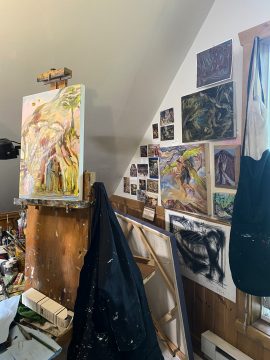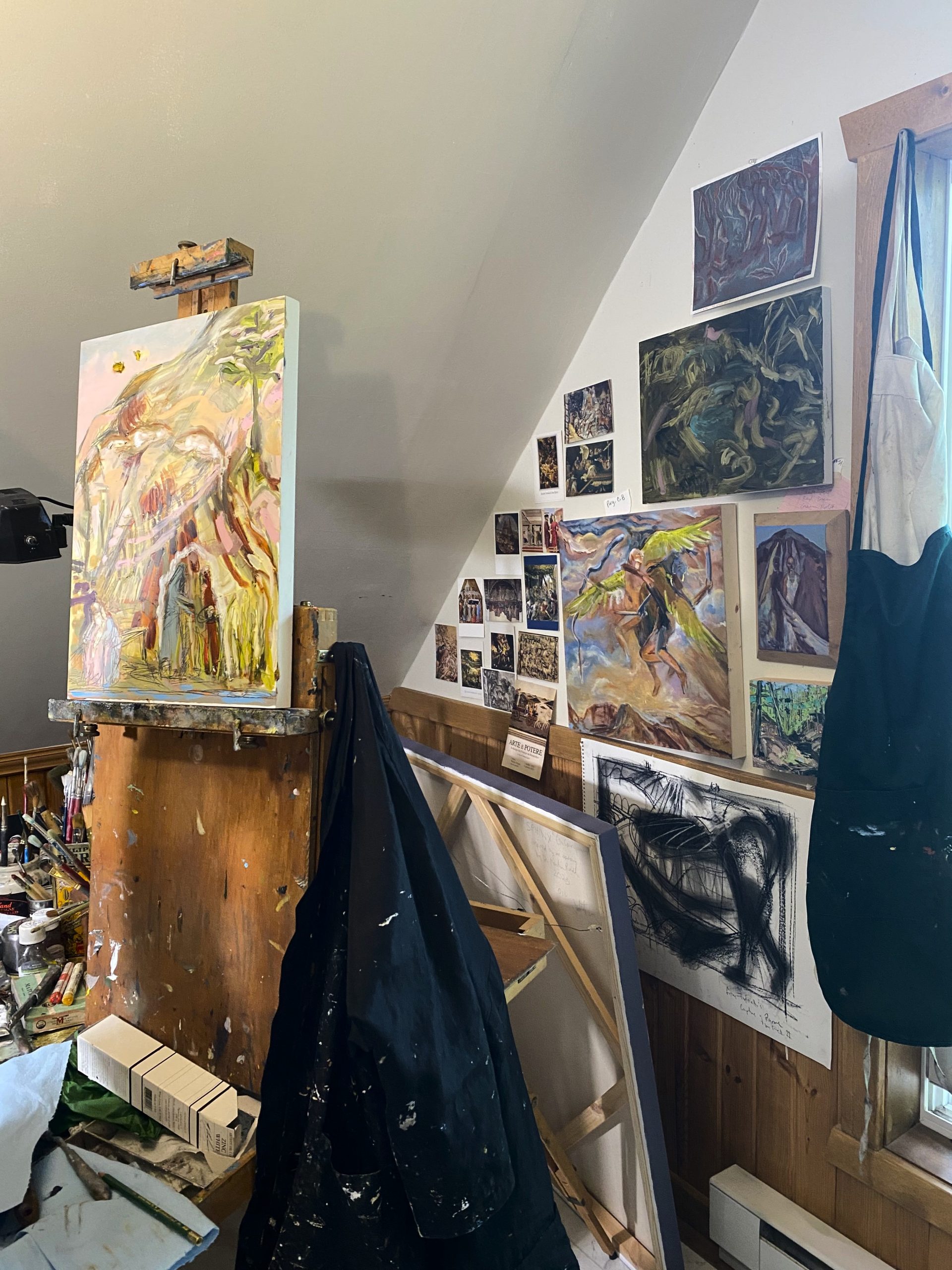The trees were ripe with a foreboding disposition, casting me in a cold, sweet sweat. The lazy moon hung low above the Fox River, too full to rise any higher. My pensive self-reflection was broken only by the goliath thunderclap rumbling for what began to feel like minutes. Through its reverberation, a low voice began to speak: “Go to the Dante Reprise with Judith Baker Waller, Massimiliano Verità and Friends at The 602 Club!” I knew I had a journey to complete.
On Saturday, May 17, I placed some bread and cheese in a handkerchief, tied it to my favorite stick and made my way down Lawe Street to The 602 Club. It wasn’t my first time in this neck of the woods, for The 602 Club houses a multitude of events, it being a “church” for the arts after all. I entered through the side door, and was met with a serenade so sweet I started to worry about insulin resistance. The mystical sound emanated from the back wall of the room, courtesy of Loren Kiyoshi Dempster on cello and upright bass, Tad Neuhaus on guitar and Joanna Dane on vocals and silver flute. The trio’s concoction became the musical backdrop for the rest of the afternoon.

Joanna Dane, who is also a co-founder of The 602 Club, welcomed us and introduced the event. She invited everyone to participate in a communal writing activity, where whoever so desired could write their definition of hope as lyric to a collaborative song. My question to you: Where do you find trust in salvation, while enduring the depths of your despair?
Poet and UW-Oshkosh Professor of English Bill Gillard was brought up to speak. He commented that his habitual musings on the afterlife were in continuity with the theme of the evening. In his hands he held his poetry collection entitled “The Vade Mecum of the True Sublime,” and as he began to read, the band began accompanying him with a slow drone. The poem spawned vivid visions in my mind’s eye as I unwillingly closed my eyes to experience the dream — in a cabbage field with Jesus, draped over barbed wire fences somewhere between a memory and a prophecy. The combination of his deep voice, profound imagery and unsettling music, brought the room somewhere else, somewhere I don’t recall. It was eternal, maledict, cold and heavy.
When his set concluded, Lawrence Professor of Arabic Massimiliano Verità distributed translated excerpts of “The Divine Comedy.” This was not my first lesson on Dante, but it was certainly the most delicious teaching I’ve consumed. Verità described Dante as a father figure in Italy, for the comedy is an essential pillar in the foundation of modern Italian.
Our journey from the inferno to the paradiso commenced, again accompanied by the sublime sound of the band. Spoken in Italian, the original rhythm and rhyme of the epic remained intact. The dream returned to the room, and though I wanted to read along, again I couldn’t help but close my eyes. “The Divine Comedy” is a journey through hell and purgatory, unto the final destination: paradise. The reading felt like a sermon, and despite my lack of proficiency in Italian, I understood it.
The haze lifted and the reading came to a close. After our experience of the comedy orally, we were encouraged to venture into the attic of the club and feast our eyes on a visual depiction. The 602 Club is a big old house, where the stairs creak with memories. The studio was full of Judith Baker Waller’s current work, based on “The Divine Comedy.” She spoke about allowing her painting to become muddy and almost grotesque, hoping to achieve beauty in the horrifying. This process is reminiscent of the comedy itself — a journey to the divine through the infernal.
I descended out of the attic and back to the living room. We had one more circle to pass through, the salvation of the afternoon. The band played one last time, and Joanna Dane read off slips of paper, each an attendee’s morsel of hope. The song closed the event, and ended with Dante’s message: “Hope is the certain expectation / of future glory; it is the result / of God’s grace and of merit that we have earned.”

